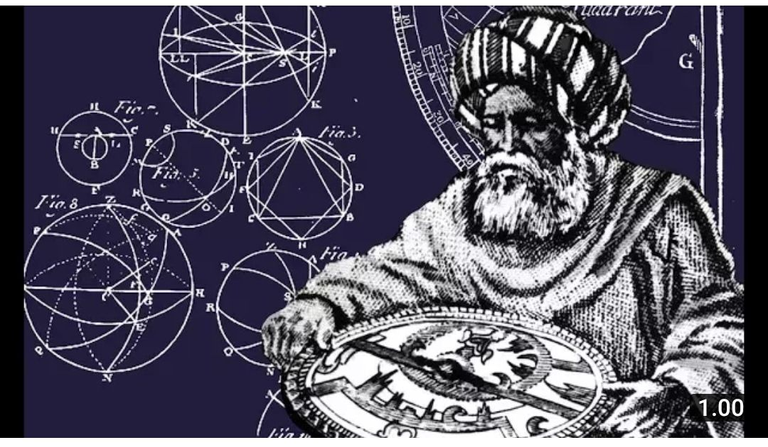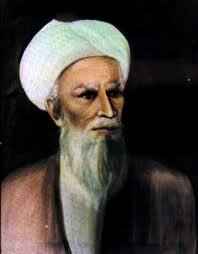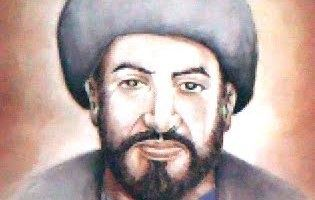Hi, friends!
Today I relinked a post about a short profile of world scientists. Previously I have reviewed six world scientist profiles in my two posts, namely "Getting to Know the World's Most Contributing Scientists | Part 1"” and "Getting to Know the World Scientists | Part 2". In this post I will review some brief profiles of other world scientists, as follows:
1. Tabit bin Qurra (Expert Astronomy and Mathematics)
Abu al Hasan Thabit bin Qurra' bin Marwan al Sabi al Harrani was an Arab scientist who was born in the city of Harran, Turkey in 218 AH/833 AD and died in 288 AH/901 AD. Astronomer and mathematician, and known as "Thebit" " "." in another language.
Thabit studied at Baitul Hikmah in Baghdad at the invitation of Muhammad ibn Musa ibn Shakir. He translated Euclid's Elements and Ptolemy's Geographia. His phenomenal works are, Mukhtasar fi Ilmin Nujum, Kitab fi Thaba'il Kawakib wa Ta'tsiriha.
2. At Tabari (Psychologist)
Abu al-Hasan Ali bin Sahl Rabban at-Tabari or better known as At-Tabari was a legendary Muslim judge, Muslim scholar, doctor and psychologist from the 9th century AD. He was born in 233H/838 AD and died in 256 H/870 AD.
At-Tabari is known as a psychologist. In addition, he also mastered physics and medicine. His name is still remembered for his influential writings. One of his works entitled Firdaus al-Hikmah which is written in seven volumes is a health encyclopedia that contains branches of health sciences.
He came from a well-known Syrian Jewish family in Merv and moved to Tabaristan, where he was known as At-Tabari. His father, Sahl Ibn Bishr was so famous that people called him Rabban (leader). Sahl was successful as a doctor, and was good at calligraphy. He also studied astronomy, philosophy, mathematics and literature.
The father was the first teacher for at-Tabari. From his father, he studied medicine and calligraphy. As a bright young man, at-Tabari was also very proficient in Syriac and Greek. His great name was recorded and immortalized in the work of his student Muhammad Ibn Zakariya al-Razi alias Rhazes, the great physicist.
At-Tabari then served in the court of the Abbasid Caliphate until the leadership of al-Mutawakkil (847-861). It is estimated that at that time, he decided to emigrate to the Islamic world when the Abbasid Caliph, Al-Mu'tashim (833-842) came to power. His books have been translated into foreign languages, such as English and German.
His works include Firdous al-Hikmah (Heaven of Wisdom), Tuhfat al-Muluk (The King's Gift), Works on the proper use of food, drink and medicine, Hafizh al-Sihhah (Right Health Care). , following the Greek and Indian authors, the Kitab al-Ruqa (Book of Magic or Amulets), the Kitab fi al-hijamah (Treatise on Cupping) and the Kitab fi Tartib al-'Ardhiyah (Treatise on Food Preparation).
3. Al Asma'i
Abdul Malik bin Quraib Al-Asma'i or known as Al Asma'i is an Arab literature expert as well as a scientist in the fields of zoology, botany, and animal care. He was born in Basra in 122H/740 AD and died in 213 H/828 AD.
His famous writings include the Book of Ibil, the Book of Khalil, the Book of Wuhush, the Book of Sya, and the Book of Khalqal Insan. His latest book on human anatomy attests to his deep and broad knowledge in this field.
Interest in horse and camel breeding led to systematic scientific work by Arabs in the early 7th century. During the reign of the Umayyad Caliph, the classification and properties of animals and plants were studied and recorded by several scientists. The results of Al-Asmai's study were very popular among scientists in the 9th and 10th centuries.



Hi, @rahmattrisnamal,
Thank you for your contribution to the Blurt ecosystem.
Please consider voting for the witness @symbionts.
Or delegate to @ecosynthesizer to earn a portion of the curation rewards!
Thank, I just following you and discord community epistem.